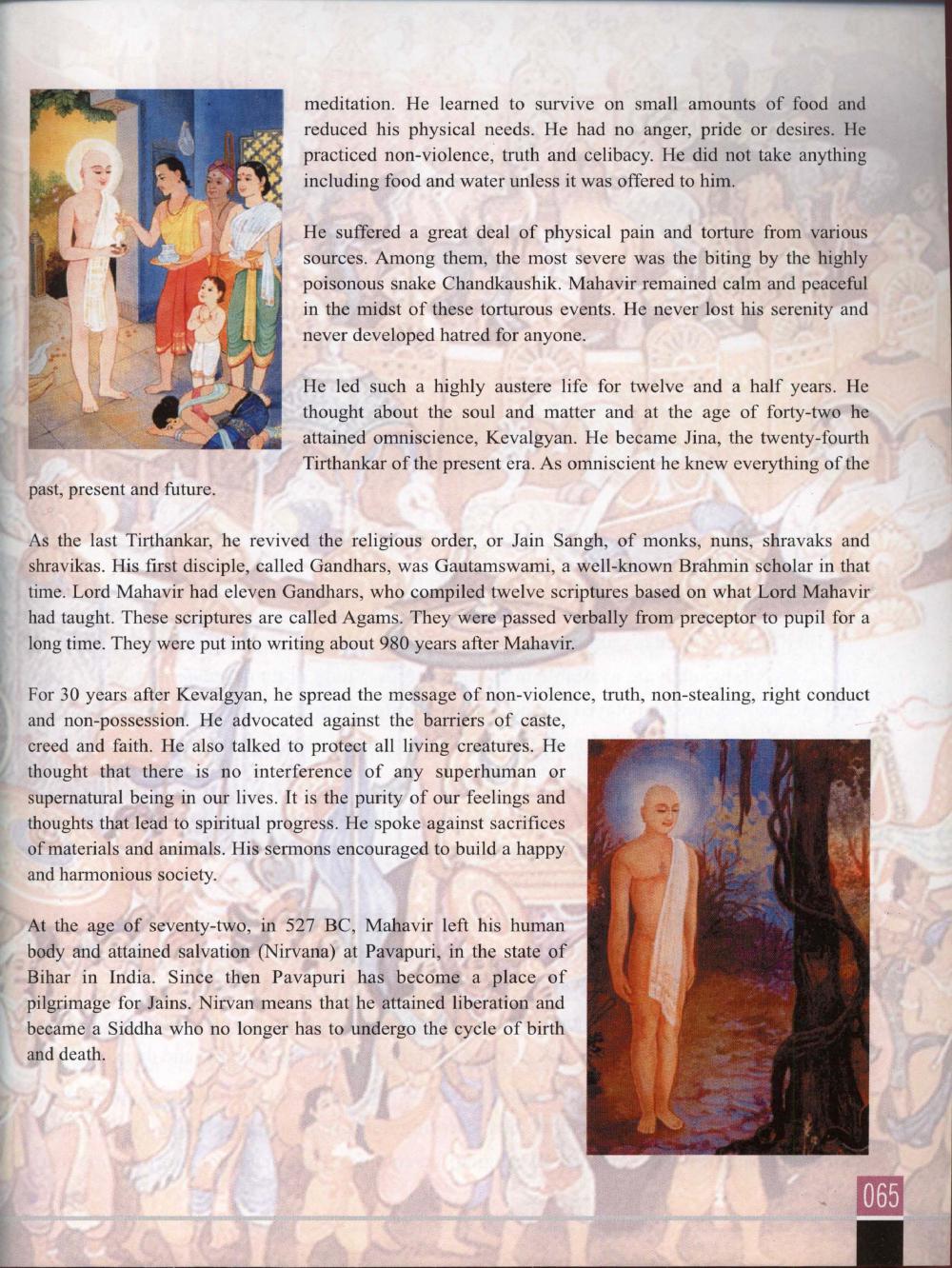________________
meditation. He learned to survive on small amounts of food and reduced his physical needs. He had no anger, pride or desires. He practiced non-violence, truth and celibacy. He did not take anything including food and water unless it was offered to him.
He suffered a great deal of physical pain and torture from various sources. Among them, the most severe was the biting by the highly poisonous snake Chandkaushik. Mahavir remained calm and peaceful in the midst of these torturous events. He never lost his serenity and never developed hatred for anyone.
He led such a highly austere life for twelve and a half years. He thought about the soul and matter and at the age of forty-two he attained omniscience, Kevalgyan. He became Jina, the twenty-fourth Tirthankar of the present era. As omniscient he knew everything of the
past, present and future.
As the last Tirthankar, he revived the religious order, or Jain Sangh, of monks, nuns, shravaks and shravikas. His first disciple, called Gandhars, was Gautamswami, a well-known Brahmin scholar in that time. Lord Mahavir had eleven Gandhars, who compiled twelve scriptures based on what Lord Mahavir had taught. These scriptures are called Agams. They were passed verbally from preceptor to pupil for a long time. They were put into writing about 980 years after Mahavir.
For 30 years after Kevalgyan, he spread the message of non-violence, truth, non-stealing, right conduct and non-possession. He advocated against the barriers of caste, creed and faith. He also talked to protect all living creatures. He thought that there is no interference of any superhuman or supernatural being in our lives. It is the purity of our feelings and thoughts that lead to spiritual progress. He spoke against sacrifices of materials and animals. His sermons encouraged to build a happy and harmonious society.
At the age of seventy-two, in 527 BC, Mahavir left his human body and attained salvation (Nirvana) at Pavapuri, in the state of Bihar in India. Since then Pavapuri has become a place of pilgrimage for Jains. Nirvan means that he attained liberation and became a Siddha who no longer has to undergo the cycle of birth and death.
065




